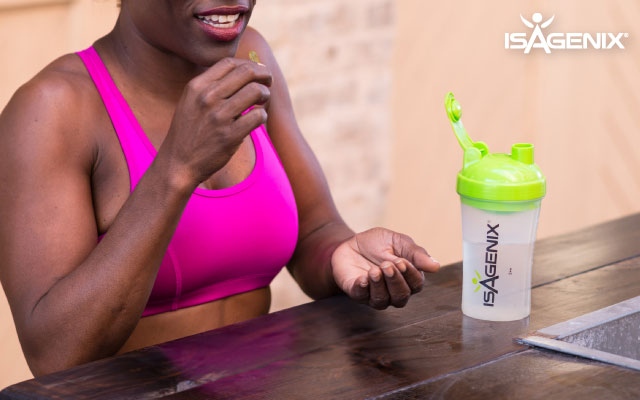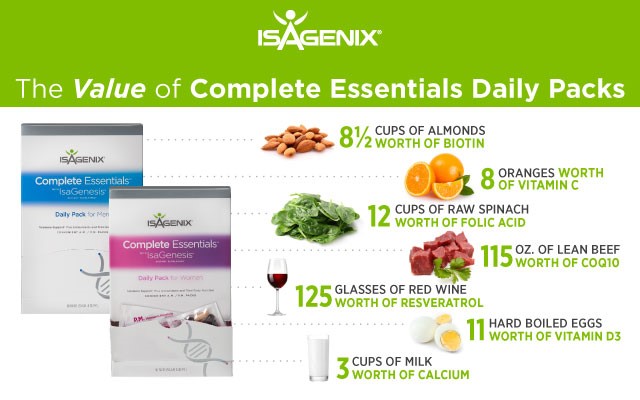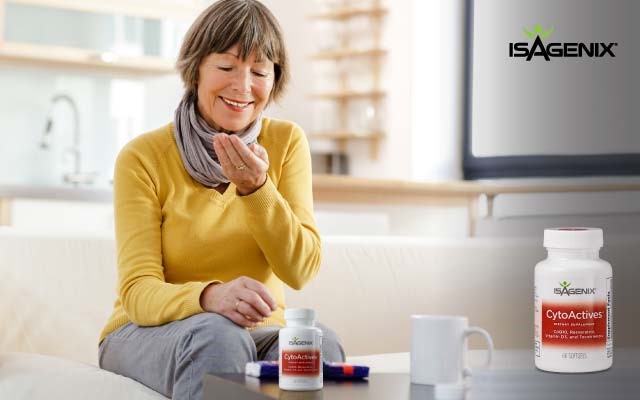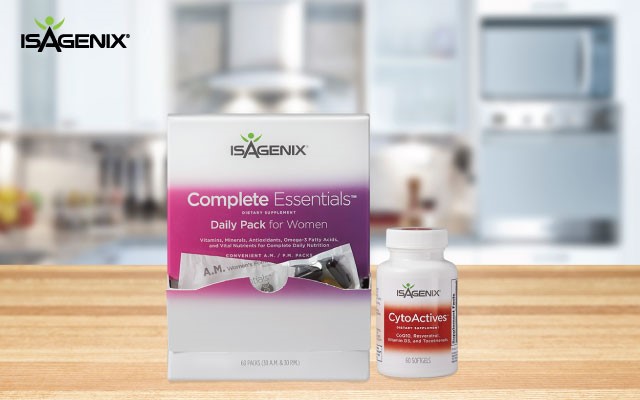National Nutrition Month is a great opportunity to discuss one of the most important heart healthy nutrients in your dietary arsenal: the long-chain, omega-3 fatty acids eicosapentaenoic acid (EPA) and docosahexaenoic acid (DHA) from fish.
How Much Nutritional Value Is in Complete Essentials Daily Pack?
When taken daily, Complete Essentials™ Daily Pack gives you the equivalent amount of vitamin C found in eight oranges, the chromium found 10 cups of broccoli, the magnesium in four dark chocolate squares and the biotin in a half cup of almonds.
Podcast: CytoActives™ Updates
Isagenix Manager of Research and Science Dr. Eric Gumpricht discusses the newly released formulations of both the Complete Essentials™ Daily Pack and CytoActives™, including what has changed and the breakthrough science behind it.
Tocotrienols: The New Vitamin E for Cellular Health
As part of new CytoActives, formerly Ageless Actives™, Isagenix has now added tocotrienols. So what are tocotrienols and why is the Isagenix Research and Science team so enthusiastic to incorporate them into a product designed to support cellular health?
FAQ: Learn What’s New In Complete Essentials Daily Pack and Reformulated CytoActives
Because of our continuing commitment to keep up with the latest in ever-developing nutritional research, Isagenix has made a few recent updates to Ageless Actives and Ageless Essentials Daily Pack.
How Much Vitamin D Should You Take in Winter Months?
It’s that time of year again when temperatures have dropped to their lowest, and it is likely your vitamin D levels have, too.
When the sun’s rays enter the Earth’s atmosphere at too much of an angle as happens during the winter season, UVB rays are blocked off, and your skin can’t produce vitamin D without them.
Study: Product B IsaGenesis Supports Healthy Aging
Product B® IsaGenesis® taken on a daily basis boosts the concentration of an enzyme that is regarded as a biomarker of healthy aging, according to a study conducted at Arizona State University (ASU).*
Podcast: What Men Should Know About Their Health
Listen up, fellas! You should know more about what you can do to protect yourself against some of men’s top health concerns. Listen in as Isagenix Scientific Advisory Board member Nicholas Messina, MD, shares his simple formula based on the latest scientific research for leading a healthy, masculine-energized lifestyle.
Stretching Your Age
Flexibility is what helps you perform daily tasks with ease. It’s also one of the greatest determinants of quality of life as you age, yet stretching is one of the most neglected components of fitness. Regular stretching in combination with staying active can help you prevent deterioration of strength and mobility that comes with age.
Can You Walk Off Your Age?
It shouldn’t be surprising that walking is good for you, but can it really help you age more gracefully? Growing evidence suggests that by walking as little as 30 minutes every day, most days of week, you can gain a range of mental and physical health benefits.










